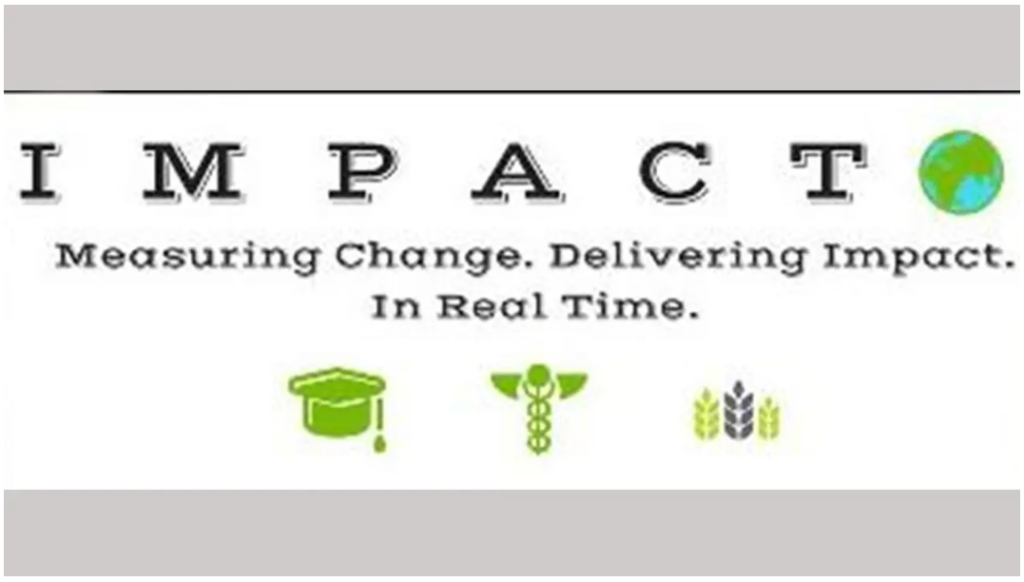At the heart of it all lies the principle of aligning corporate goals with social needs.
Corporate Social Responsibility (CSR) has evolved from being a mere philanthropic activity to a strategic business approach aimed at fostering positive social and environmental impact. In this transformative journey, impact-driven CSR initiatives have emerged as a potent tool for companies to actively engage with communities while addressing critical societal challenges. Such initiatives not only create a lasting impact but also strengthen a company’s brand, foster innovation, and drive sustainable growth.
At the heart of it all lies the principle of aligning corporate goals with social needs. Gone are the days when CSR initiatives catered to the company’s goals and objectives, ignoring the needs of the community. Today, leading businesses recognize the need to leverage their resources, expertise, and technology to drive meaningful change among communities, lending a hand in growth and development of the country. By identifying areas where capabilities intersect with societal needs, companies can catalyze transformational outcomes.
Monitoring and transparency are integral to impact-driven CSR initiatives. Companies must set clear, quantifiable goals that demonstrate the outcomes of their efforts. CSR Impact assessments allow companies to refine their strategies, amplify interventions, and learn from challenges. Transparent reporting holds companies accountable, builds trust with stakeholders, and encourages a collaborative approach among competitors, NGOs, governments, and communities.
The synergy between CSR initiatives and the United Nations’ Sustainable Development Goals (SDGs) further accentuates their significance. By addressing specific SDGs, companies can contribute to global targets while tailoring their efforts to local contexts. This alignment enhances the effectiveness of CSR initiatives and helps track progress on a global scale.
One of the prime examples of an impact-driven CSR initiative is the collaboration between a global technology giant and a nonprofit organization to enhance digital literacy and technology driven vocational training programs among underserved communities. Leveraging the company’s technological prowess, the initiative provides training, digital infrastructure, educational resources and hand—on training opportunities, bridging the digital divide among different strata of the society. This not only empowers individuals with new skills but also opens doors to employment opportunities in today’s technology driven job market.
Impact-driven CSR initiatives are not just about monetary contributions; they also embrace employee engagement. When employees are involved in CSR efforts and know their stakeholders, communities included, their programs will be more aligned with their values, giving them a sense of purpose and pride, which permeates the workforce. This synergy fosters a culture of empathy and social responsibility, enhancing employee satisfaction and retention. Moreover, engaged employees often contribute innovative ideas to solve societal challenges, driving a positive feedback loop of innovation and impact.
The ripple effects of such impactful CSR initiatives are felt far beyond immediate beneficiaries.
Consider a sustainable agriculture project initiated by a food and beverage company. By promoting eco-friendly farming practices and supporting small-scale farmers, the company not only improves local livelihoods but also ensures a steady supply of high-quality ingredients for the food market. This 360-degree approach not only uplifts communities but also bolsters the company’s resilience and reputation.
In conclusion, impact-driven CSR initiatives are a driving force in reshaping the CSR landscape where it is mandatory for all stakeholders – Companies, Communities and Governments to work together to ensure a progressive nation. Exit from conventional charity to a strategic and holistic approach that generates sustainable, positive change is the need of the hour.
SDG 17 (Partnerships for the Goals) illuminate a path toward achieving the SDGs, facilitating a collaborative journey toward a more equitable and prosperous world. As businesses continue to embrace their role as agents of change, the era of impact-driven CSR heralds a brighter and more inclusive future for all.
Article Credits: Mid Day
